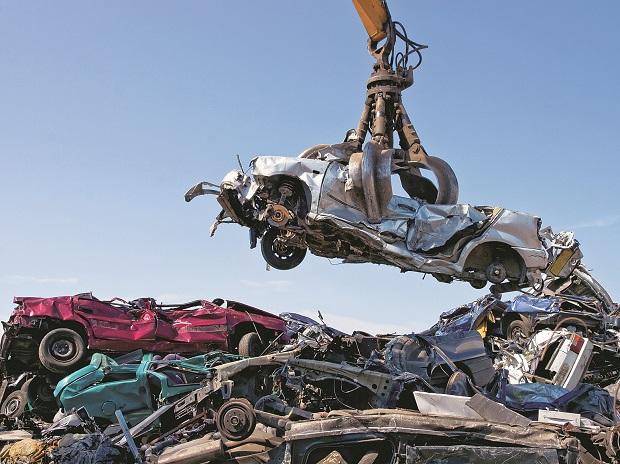As vehicles age, maintaining them becomes a challenge—rising repair costs, reduced efficiency, and environmental concerns make it difficult to justify keeping an old car on the road. In India, the concept of scrapping vehicles is gaining momentum as the government pushes for cleaner and greener mobility. Whether your car has reached the end of its life or you’re simply upgrading to a newer model, understanding how to scrap cars in India properly is essential.
In this comprehensive guide by Moto Scrap, we’ll walk you through everything you need to know before scrapping your car in India—covering legal procedures, documentation, valuation, and tips to ensure a smooth and profitable experience.
What Does It Mean to Scrap a Car?
Scrapping a car means dismantling and recycling an end-of-life vehicle (ELV) that is no longer roadworthy or fails to meet emission standards. The process involves:
- Removing reusable parts like tyres, batteries, and seats
- Segregating recyclable materials such as metal and plastic
- Safely disposing of hazardous components like engine oil and coolant
Scrapping ensures your old car doesn’t end up polluting the environment and that its materials are repurposed responsibly.
Why You Should Scrap Old Cars
There are several reasons why scrapping is not just a good choice—but the right one:
- Environmental Benefits: Old vehicles emit significantly higher levels of pollutants. Scrapping them helps reduce air pollution and supports India’s green mobility mission.
- Legal Compliance: As per the Vehicle Scrappage Policy, cars older than 15 years (in most states) and failing the fitness test cannot be legally driven. Scrapping ensures compliance and avoids penalties.
- Space and Cost Efficiency: Maintaining an old car that breaks down often can be costly. Scrapping saves you recurring expenses and frees up parking space.
- Financial Return: By choosing an authorized dealer like Moto Scrap, you can get the best value for your scrap car based on its weight, condition, and parts.
The Vehicle Scrappage Policy in India
The Vehicle Scrappage Policy, introduced by the Government of India, aims to remove unfit vehicles and promote the recycling industry. Here’s what you need to know:
- Private Cars: Older than 15 years must pass a fitness test to remain on the road.
- Commercial Vehicles: Must be scrapped after 10 years in Delhi (and 15 years in other states) unless renewed.
- Incentives: Owners who scrap their old vehicles may receive benefits like road tax rebates, discounts on new vehicle purchases, and waived registration fees.
Authorized scrapping facilities like Moto Scrap are equipped to handle this process legally and responsibly.
Documents Required to Scrap Cars in India
Before you head to a scrap yard, make sure you have the following documents ready:
- Original RC (Registration Certificate) of the car
- Owner’s ID proof (Aadhaar or PAN card)
- Authorization letter if someone else is handling the scrapping on your behalf
- Insurance and Pollution Certificate (PUC) (if available)
- Photographs of the vehicle (before scrapping)
Once your car is scrapped, the authorized dealer will provide you with a Certificate of Destruction, which is necessary to deregister your vehicle with the RTO.
The Step-by-Step Process to Scrap Cars in India
Let’s break down the process of scrapping your old car through a trusted partner like Moto Scrap:
- Contact an Authorized Scrapping Dealer: Always choose an authorized scrap car dealer recognized by the government. This ensures that your vehicle is dismantled and recycled according to environmental and safety standards. Moto Scrap is one such verified and eco-friendly service provider across India.
- Vehicle Inspection and Valuation: The dealer will inspect your car to assess its condition and metal content. Based on this, they will quote a price for your vehicle. Factors like brand, model, and weight influence the scrap value.
- Documentation and Verification: Once you accept the offer, you’ll need to hand over the required documents. The dealer will verify ownership details and initiate the legal process.
- Deregistration at the RTO: Before scrapping, your car’s registration must be officially cancelled at the RTO. The scrap dealer can help with this step. You’ll receive an acknowledgment from the RTO confirming the cancellation.
- Scrapping and Recycling: Your car is dismantled in a systematic way. Useful parts are recovered, and metal components are sent for recycling. Moto Scrap ensures every step meets environmental regulations.
- Receive the Certificate of Destruction: After completion, you’ll receive a Certificate of Destruction. This document proves that your vehicle is no longer in circulation, protecting you from any future legal or misuse issues.
How Scrap Value is Determined
The scrap value of a car in India depends on several factors:
- Weight of the Vehicle: Heavier cars fetch higher value due to more metal content.
- Condition of Parts: If some parts like the battery or tyres are reusable, you can get extra money.
- Market Metal Rates: Fluctuating metal prices directly impact scrap value.
- Location and Dealer: Authorized dealers like Moto Scrap often offer higher rates compared to unverified local scrap yards.
On average, you can expect anywhere between ₹15 to ₹50 per kilogram depending on the vehicle’s make and model.
Common Mistakes to Avoid When Scrapping Your Car
Many car owners make errors that cost them time and money. Avoid these common pitfalls:
- Not Deregistering the Car: If your car isn’t officially deregistered, it could still be used illegally under your name.
- Choosing Unauthorized Dealers: Unregistered dealers might mishandle or misuse your vehicle’s documents.
- Not Collecting the Certificate of Destruction: Always demand this document as proof of legal scrapping.
- Ignoring Market Research: Compare rates before finalizing to ensure you’re getting a fair price.
Moto Scrap simplifies this entire process, offering transparent pricing, proper paperwork, and hassle-free pickup from your location.
Environmental Impact of Scrapping Cars
Scrapping is not just a financial transaction—it’s an environmental responsibility. Every car recycled through authorized channels prevents hazardous waste from polluting soil and water.
Moto Scrap uses eco-friendly dismantling techniques that recover up to 95% of materials, reducing landfill waste and supporting India’s circular economy. By choosing to scrap cars in India responsibly, you contribute to cleaner air and sustainable resource management.
Why Choose Moto Scrap
Here’s why Moto Scrap stands out among authorized scrap car dealers in India:
- Government-Approved Facilities that comply with the Vehicle Scrappage Policy
- Instant Quotes and Doorstep Pickup for your convenience
- Transparent Process with no hidden charges
- Eco-Friendly Recycling practices aligned with national standards
- Certificate of Destruction and assistance with RTO deregistration
With Moto Scrap, scrapping your old car becomes quick, secure, and profitable.
Final Thoughts
Scrapping your car may seem like a small step, but it has significant economic and environmental implications. By partnering with trusted services like Moto Scrap, you can ensure your old vehicle is recycled responsibly while earning the best value for your asset.
Whether you’re retiring a decade-old sedan or an aging SUV, the process of scrap cars in India is now smoother and more transparent than ever. From document assistance to instant valuation, Moto Scrap handles every detail, letting you focus on what comes next—your new ride and a cleaner future for all.



